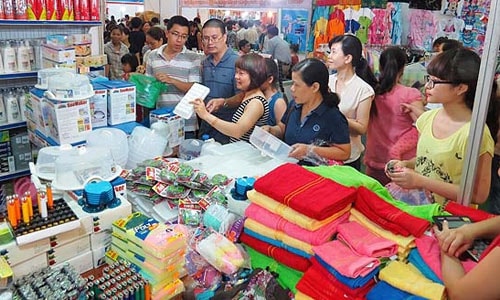5 responsibilities consumers need to know
(Baonghean.vn) - 34 years ago (March 15, 1983 - March 15, 2015), the United Nations officially declared March 15 as "World Consumer Rights Day". World Consumer Rights Day originated from the speech of US President John Kennedy in the US Senate on March 15, 1962, promoting 8 consumer rights. Opposing social injustices and market abuses that harm consumers.
Consumers International is a federation of consumer organizations worldwide, dedicated to protecting and promoting consumer rights worldwide. Currently, Consumers International has 267 members in 123 countries and territories around the world.
 |
| Consumers have eight basic rights as stipulated in Article 8 of the Law on Consumer Protection. Illustrative photo. |
Today, 8 consumer rights have been recognized by the United Nations and many countries, which are the basis for consumer protection activities of the International Consumers and consumer organizations worldwide. The United Nations stipulates 8 consumer rights including:
The right to satisfaction of basic needs; the right to safety; the right to information; the right to choice; the right to be heard; the right to complaints and redress; the right to consumer education and training; the right to a healthy and sustainable living environment.
At the same time, regulations stipulate that consumers haveThe five responsibilities include: being critical; being proactive; being socially concerned; being consumer-savvy and community-conscious.Currently in Vietnam, the Law on Consumer Protection stipulates 8 rights and 2 obligations of consumers.
 |
| The theme of World Consumer Rights Day 2017 is "Business for Consumers". |
In order to unify the content and form of activities, international organizations have issued many regulations, guidelines, and programs related to the protection of consumer rights. Over time, these contents have gradually focused on a number of common issues that exist in many countries and regions around the world. One of the issues that is often mentioned in these contents is product safety and the right to safety of consumers.
 |
| Authorities destroy poor quality goods. Illustrative photo. |
The right to safety is one of the basic rights of consumers. All consumer rights are important and need to be effectively enforced. However, in recent times, the right to safety has been a content mentioned and noted a lot in documents and international-scale activity programs.
To ensure consumers' right to safety, the responsibilities of relevant parties need to be specifically regulated and there needs to be a monitoring mechanism in implementing these contents.
United Nations Guidelines on Consumer Protection - The Government should adopt or have policies to encourage the adoption of appropriate measures, including the promulgation of legal regulations, mandatory and voluntary standards systems to ensure that products and services are safe for their intended use (both for their primary purposes and for purposes that may arise in practice). - Policies must ensure that goods are produced safely for both normal use and purposes that may arise in practice. It is the responsibility of parties involved in the distribution of goods (importers, exporters, retailers, transporters, etc.) to ensure the safety and integrity of goods during their circulation. Consumers must be instructed on how to use goods safely under normal conditions and purposes. At the same time, consumers must be warned about possible risks during use. Instructions and warnings should be illustrated with international symbols (if possible). - Policies need to stipulate the responsibilities of parties involved in the production and trading of goods when discovering defects, even latent defects of goods, especially goods already in circulation on the market. Accordingly, the responsibility of these units and individuals must be to immediately notify consumers and relevant management agencies about defects of goods. The Government must ensure the use of methods to promptly provide information to consumers. - The Government needs to issue regulations on the responsibility of organizations and individuals in production and business to recall defective products; on the measures that organizations and individuals must take within a reasonable time. If reasonable measures are not taken within the prescribed time and losses occur to consumers, these organizations and individuals must compensate. |
Peace
(Synthetic)
| RELATED NEWS |
|---|








